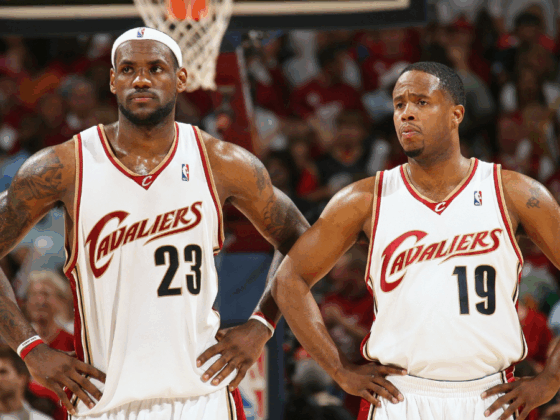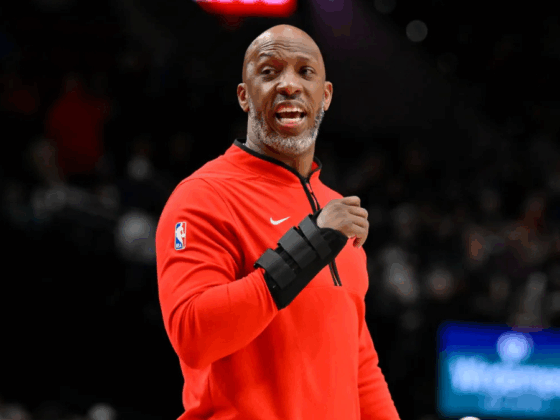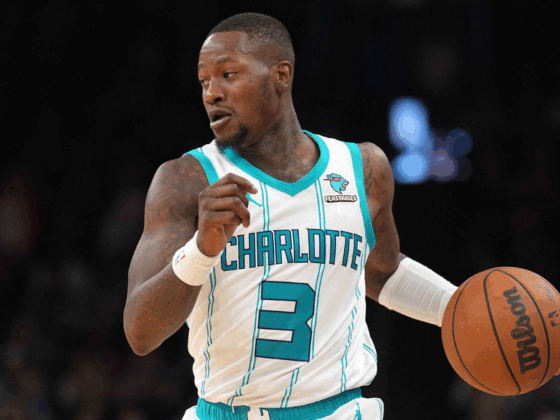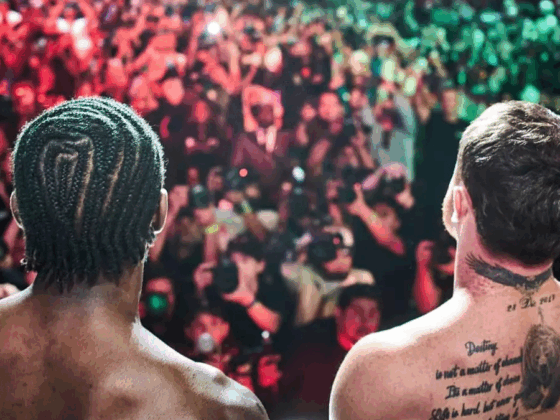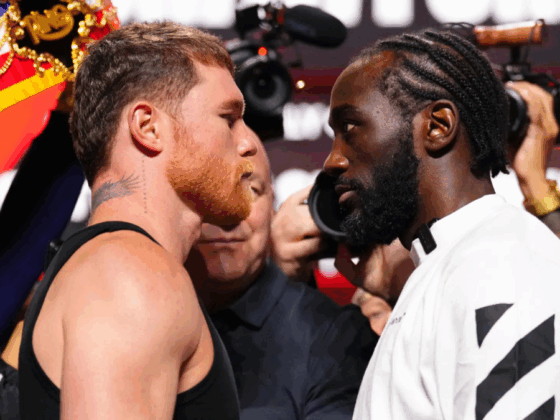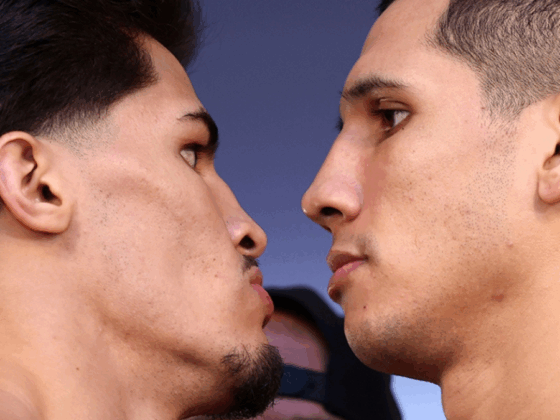
In literature, a tragedy is a story of human suffering that an individual encounters. To the hero, what was once harmonious quickly falls into disaster. This may sound farfetched, but make no mistake about it, Derrick Rose’s career has been a tragedy.
After becoming the League’s youngest MVP in 2011, things couldn’t have looked better for Rose. At the age of 22, he had become the centerpiece of the team whose city he grew up in. This was a dream come true. The future was as bright as could be. However, like in any good tragedy, that’s when misfortune hits the hardest.
Rose ended up losing a season and a half to injury directly after winning the MVP. To pile up on top of that life-altering event, he lost another season after he returned for only ten games. At this point, it looked like it was almost too much to bear. Rose’s career was left in shambles.
At first glance, Rose’s stats don’t look too bad. Sure, he’s not putting up MVP-level numbers, but his counting stats suggest that he’s more than a serviceable NBA player. After all, not just anyone can average 18 points a game in the NBA. However, really digging into these stats and looking at the circumstances that surround them suggest that Rose may be hurting his team more than helping it.
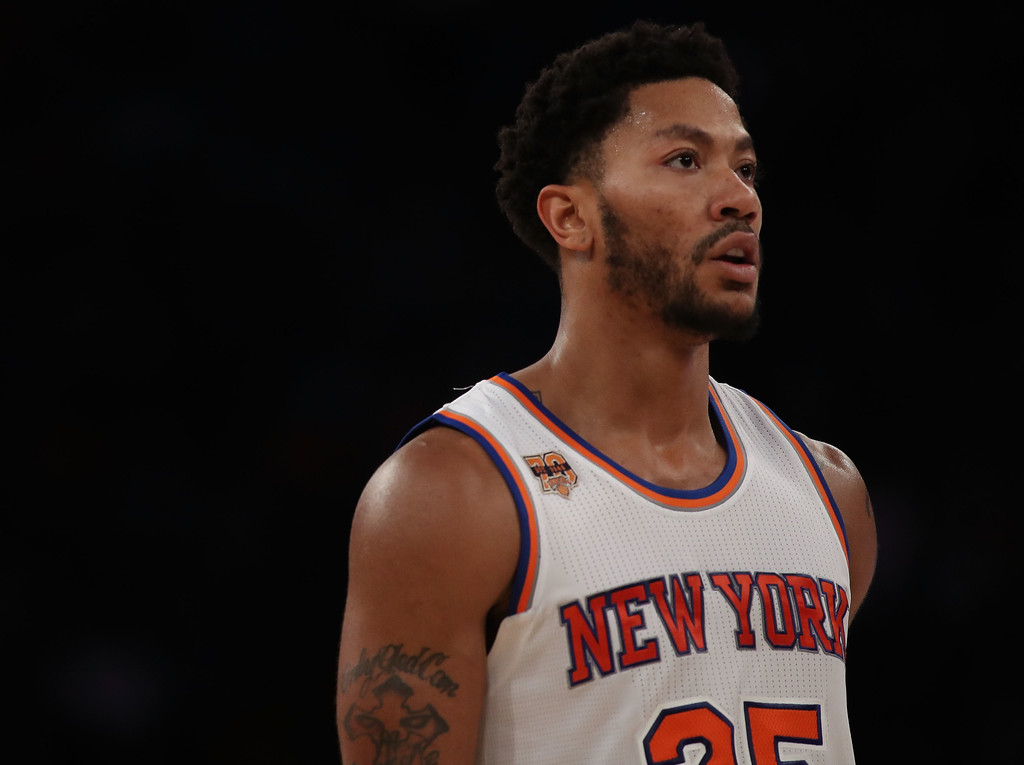
The Knicks had an active offseason and had big expectations for themselves. A starting five of Rose, Courtney Lee, Carmelo Anthony, Kristaps Porzingis, and Joakim Noah, on paper, had the potential to make a good playoff run. Instead, the Knicks have been extremely disappointing and are on pace for a worse record than last season. There are many factors affecting the Knicks on the court this season, but a good amount of disappointment lays squarely on Rose’s shoulders.
One of the biggest dropoffs Rose has had statistical wise are his assist numbers. Pre-injury Rose averaged at least six assists per game. That number even reached as high as 7.9 assists per game (2011-2012). On the other hand, Post-injury Rose has never eclipsed five assists per game and is nearing a career low this season with 4.4 assists per game. Of starting point guards in the NBA, Rose ranks 28th in APG this season. Of point guards averaging at least 32 minutes a game, Derrick Rose ranks dead last. What was once a strength for Rose has now become a huge problem because of his decreased playmaking ability.
Rose’s shooting has also severely regressed. Rose is taking the third most shots for the Knicks this season, but his eFG% is 11th on the team. He has cut back dramatically on shooting three pointers, only averaging one a game, but his percentage is down to an embarrassing 21.7%. He may be averaging 18 points a game, but his efficiency is nothing close to Carmelo or Kristaps. Of players playing 32 minutes a game this year, Rose’s 47.2 eFG% ranks 56th out of 59.
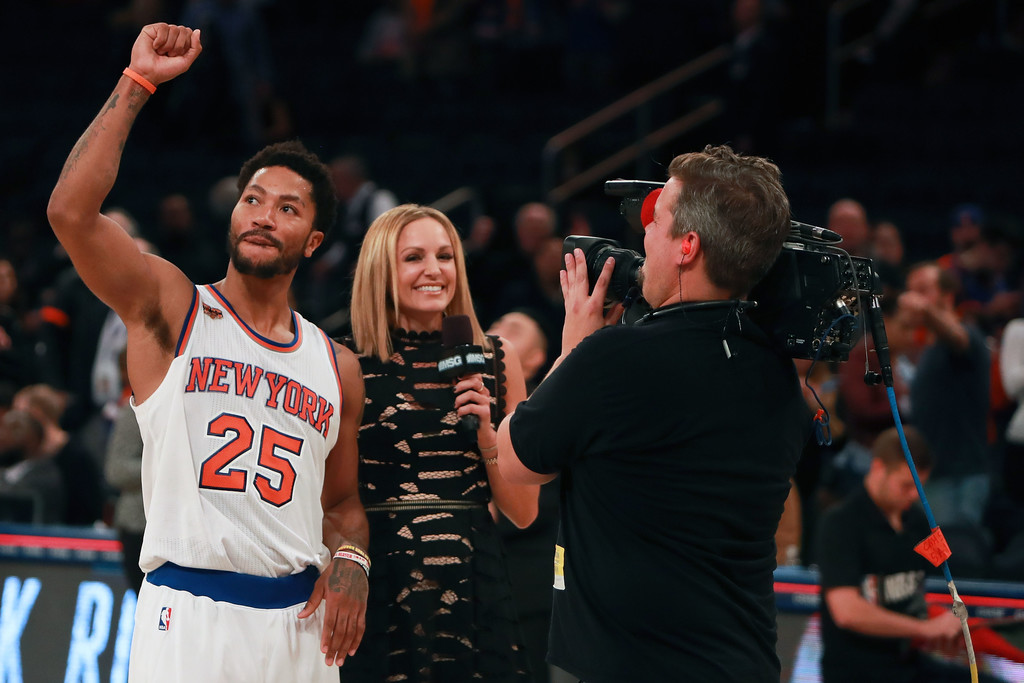
The biggest factor that has affected Rose’s production after his injury has been his decision making. Rose obviously believes that he is the best player on the court in any given situation, and it shows up in his play. Pre-injury, this confidence manifested itself in some unbelievable plays and showstopping dunks. However, his body isn’t capable of keeping up with his mind anymore. Despite no longer being able to explode to the basket or shake defenders, Rose plays as if he’s still dominating the court. Ill-advised shots, drives, and passes cost his team points, possessions, and wins.
Every tragedy has a lesson. “Hamlet” teaches of the dangers of revenge. “King Lear” warns about the consequences of misjudging character. So what is the lesson NBA players can learn from the tragedy of Derrick Rose? Don’t let your ego affect your ability to play within yourself.
Derrick Rose is determined to convince the world he’s still an MVP, but he’s simply not capable of playing at that level anymore. If Rose was able to play within himself, make better decisions based on his actual athletic and skill level, and accept a role and salary, he could still be an extremely useful player in the NBA. However, until his attitude and mindset have massive changes, Rose will hurt whatever team he’s a part of. No NBA team is looking for an inefficient scorer who can’t pass or defend.

